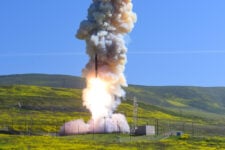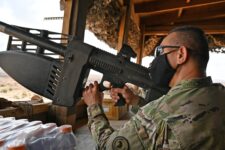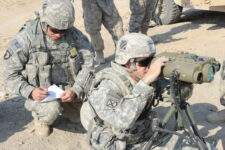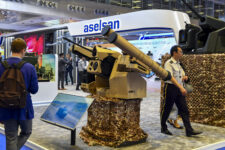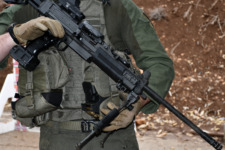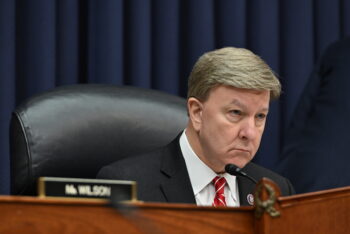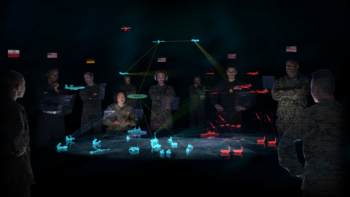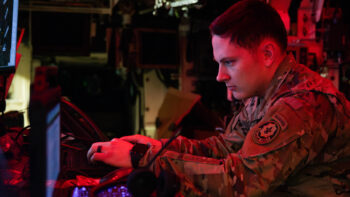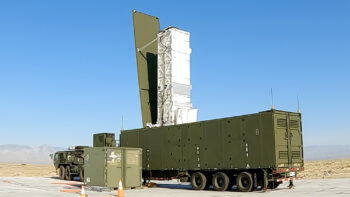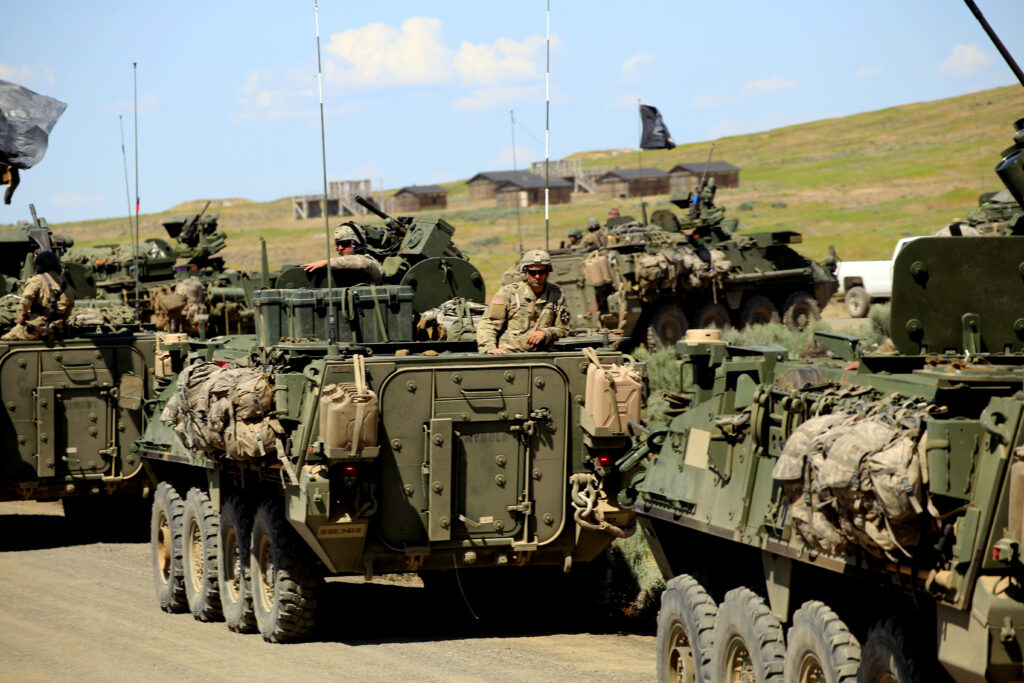
81st Stryker Brigade Combat Team troops on a field exercise last year.
WASHINGTON: After years of hard work to increase the number of brigade-level wargames at the Army’s celebrated Combat Training Centers, the Army has begun postponing those prized training opportunities to prevent the spread of the COVID-19 coronavirus. National Guard units are being called up by their state governors for domestic relief operations, while the Army Reserve has cancelled all units’ routine monthly “battle assemblies.”
The Army has already frozen deployments of thousands of soldiers to NATO Defender 2020 wargames in Europe, which were seen not only as vital training for large-scale conflict but as a signal to Russia of NATO resolve. The fact that the Army is cutting back training events after years of struggling to repair combat readiness is a sign of how seriously the service now takes the global pandemic.
Yesterday, the Army announced that the 81st Stryker Brigade Combat Team, a unit of the Washington Army National Guard, would no longer go to the National Training Center on Fort Irwin this May as planned. As is typical for an NTC exercise, the brigade had been preparing for months. “They are now available to the governor of Washington state to respond to the current situation there,” said an Army statement.
Increasing Combat Training Center rotations for the Guard in particularly, which usually gets fewer high-level training opportunities, had been a high priority for Army leaders.
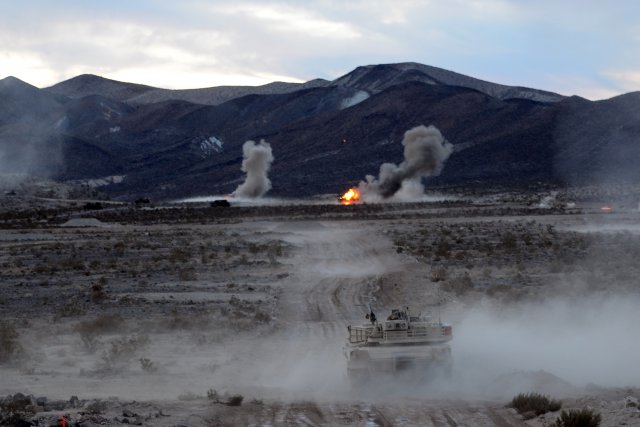
M1 tank at the National Training Center at Fort Irwin, California.
While the 81st SBCT is the only unit named so far, the Army said it “will adjust” deployments to all three of its Combat Training Centers: NTC on Fort Irwin, Joint Readiness Training Center at Fort Polk, La., and the Joint Multinational Readiness Center at Hohenfels, Germany.
“At this time, the Department of the Army senior leaders are analyzing different options to determine how best to ensure that units continue to have the premiere collecting training opportunity that a CTC provides,” Army spokesperson Cheryle Rivas said yesterday in an email. “Our first priority during this time is protection of the force, but we continue to do what we can to ensure we sustain combat readiness to meet combatant command requirements.”
Yesterday afternoon, the three-star chief of the Army Reserve, Lt. Gen. Charles Luckey, posted new marching orders for his force in a Facebook video, relaying Defense Secretary Mark Esper’s instruction to cease all non-essential travel and adding Reserve-specific restrictions of his own.
UPDATE FOR CLARIFICATION:Battle assemblies through the end of March are suspended. This gives commanders authority to take appropriate actions to ensure the health, safety and welfare of Soldiers, families and communities. Check with your chain of command for the latest guidance on Battle Assembly schedules and training exercises and any rescheduled training.We are not going to erode readiness, but we are going to protect this force to project readiness in the future.Certain units may need to continue operations, but that will be decided on a case-by-case basis. Wash your hands with soap and water for 20 seconds. It's absolutely essential you maintain your distance to combat the spread of this virus. Keep Pounding…DE6
Posted by LTG Charles D Luckey on Wednesday, March 18, 2020
“A couple of things I want everybody in America’s Army Reserve to understand as we combat this virus,” Luckey said: “No. 1, Inside the Army Reserve, we are stopping movement, unless it’s for essential purposes, and that’s defined by higher authorities, so when in doubt, just stay where you are….”
“No. 2 , battle assemblies across the Army Reserves, the default … is no battle assemblies until further notice from me,” he continued. “There may be certain units that we need to continue to allow to conduct certain activities, and we’ll decide that on a case-by-case basis.”
“We’re not going to erode readiness while we’re doing this, but by the same token, we’ve got to protect this force so we can project readiness into the future,” he said. “The best way to protect this force is by limiting movement and by limiting congregation of our soldiers.”
Luckey also repeated the now-standard instructions to wash your hands for 20 seconds, avoid handshakes and hugs – “hate to say it but don’t be doing it, there are other ways to communicate the fact that you’re happy to see people” – and to maintain six feet of distance from others. “That’s how we protect this force, that’s how we protect our fellow citizens, that’s how we’re going to roll,” the general said.
Connecticut lawmakers to grill Army, Lockheed about job cuts at Sikorsky helicopter unit
“The Connecticut delegation has questions about why, with that [FY24] appropriation in hand, this happened,” said Rep. Joe Courtney, D-Conn.








